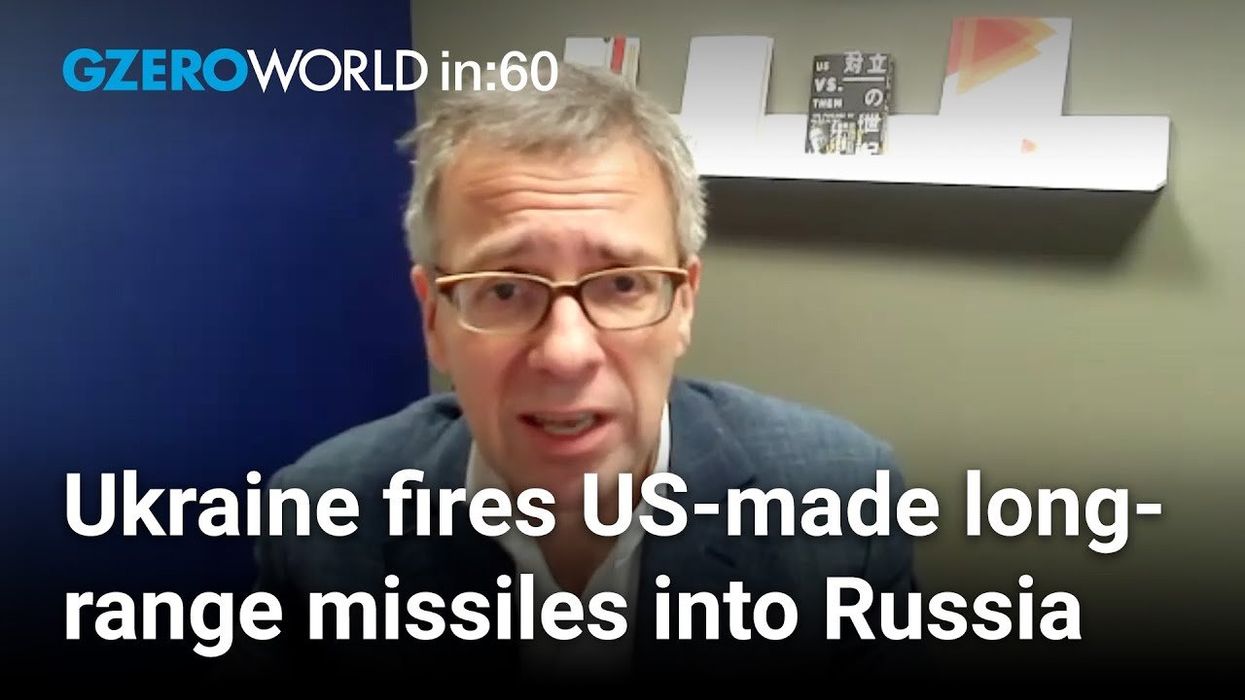ask ian
Ukraine fires US missiles into Russia. What's next?
Ukraine has launched US-made long-range missiles into Russia for the first time. Will this change the course of the war? How likely will Trump be able to carry out mass deportations when he's in office? Will there be political fallout from Hong Kong's decision to jail pro-democracy activists? Ian Bremmer shares his insights on global politics this week on World In :60.
Nov 19, 2024


